Last Updated on March 19, 2021 by OJ Maño
Ano ang ambag mo? Please get to know 7 notable Philippine Senators from Bulacan as they made their marks from the halls of the Senate to the daily lives of Filipinos. It is important to honor our distinguished Bulakenyo gentlemen. They served as senators in the Republic of the Philippines and instituted landmark laws that helped shape our beloved country into what it is today.
Read More: Discover Bulacan: Land of the Heroes
Philippine Senators From Bulacan
1. Senator Joel Villanueva, Bocaue (2016-Present)
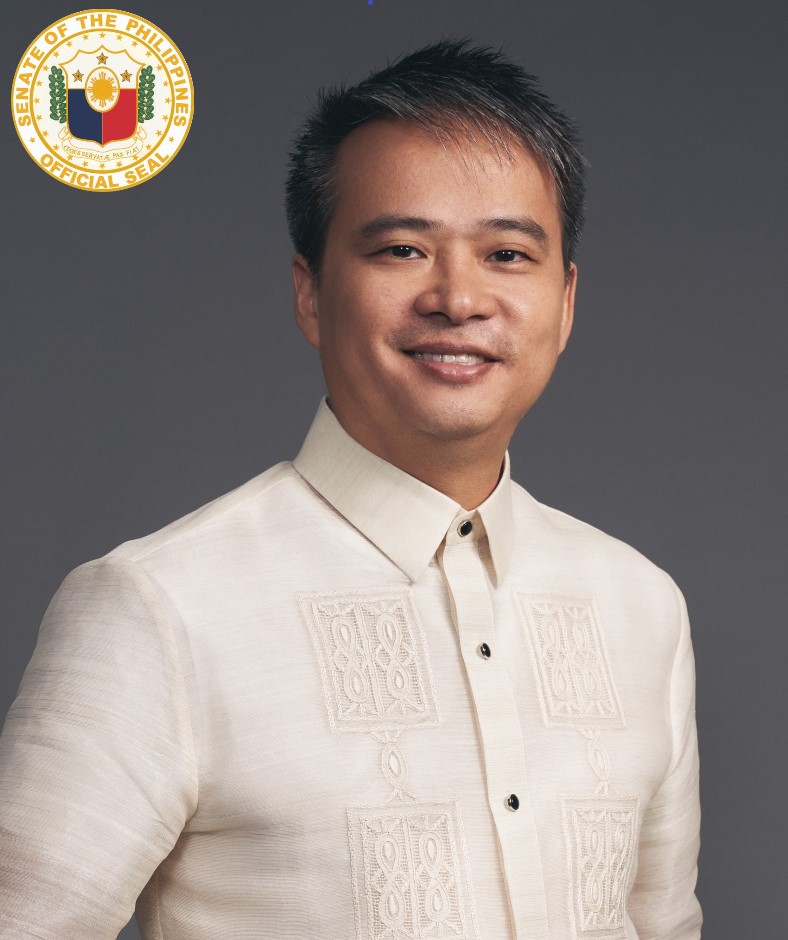
Born August 2, 1975, he hails from Bocaue, Bulacan, and became the youngest member of the House of Representatives in 2001 at 26 under the party-list Citizens’ Battle Against Corruption (CIBAC). In 2010, he was appointed as Director-General of the Technical Education and Skills Development Authority (TESDA), where he earned the moniker “TESDAMAN.”
He went on to win the senatorial race in 2016 and is proud to be one of the senators from Bulacan. He currently chairs the Senate Committees on Labor, Employment and Human Resources Development, and Higher, Technical, and Vocational Education.
He is the son of the Jesus Is Lord Church (JIL) founder and now congressman Eddie Villanueva of the CIBAC party-list and Adoracion “Dory” Jose-Villanueva.
He attended the University of Santo Tomas, where he graduated in 1996 with a Bachelor of Science in Commerce degree, with a Major in Economics. He attended Harvard University in the United States for graduate studies in Business Administration from 1996 to 1998.
He is also a superb basketball player and even played for the Philippine National Team in the 1994 SEABA Championship. He was part of the Growling Tigers team when the University of Santo Tomas (UST) bagged the UAAP Season 57 Championship of the Men’s Senior Basketball Division.
Some Notable Laws or Bills Filed
- Republic Act No. 11261 – First-time Job Seekers Assistance Act
- Republic Act No. 11058 – Occupational Safety and Health Standards Law
- Republic Act No. 11165 – Telecommuting Act
- Senate Bill No. 1826 – End Endo bill (vetoed by President Duterte)
- Senate Bill No. 1520 – Doktor Para sa Bayan (Medical Scholarship) bill
- Senate Bill No. 1513 – Labor Education Act
- Senate Bill No. 1298 – Individuals with Disabilities Education Act (IDEA) of 2016
- Senate Bill No. 1571 – Alternative Working Arrangement bill.
2. Senator Blas Ople, Hagonoy (1992-2002)
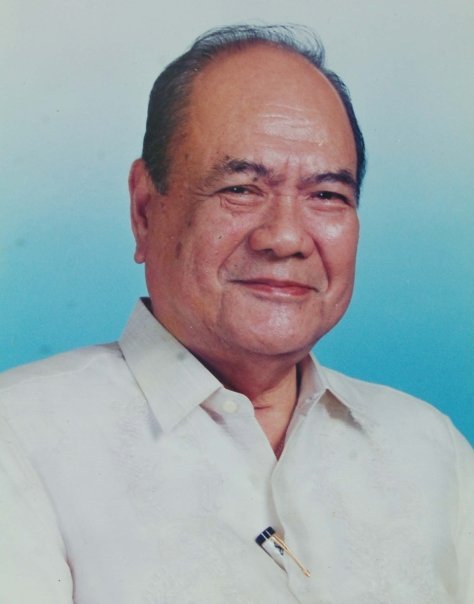
The late senator Blas Ople was born on February 3, 1927, in Hagonoy, Bulacan, to working-class parents. Felix Antonio Ople’s father was a craftsman who repaired boats, while his mother, Segundina Fajardo, was a simple housewife. The young Ople graduated valedictorian at the Hagonoy Elementary School.
He is a Filipino war hero who fought in the Second World War as a young officer of the Del Pilar Regiment in the Bulacan Military Area. He was just 16 years old during that time.
After finishing high school at the Far Eastern University in 1948, he studied Liberal Arts at the University of the Philippines and Manuel L. Quezon University. He graduated with a Liberal Arts degree from the Educational Center of Asia (formerly Quezon College) in Manila. Looking for the so-called greener pasture, the hardworking Bulakenyo applied for a job at the Manila Times – Daily Mirror publications. He was hired on the spot as a desk editor.
As a journalist, Ople was considered one of the youngest columnists in that golden era of journalism. He wrote the light and breezy column “Jeepney Tales” for the Daily Mirror, a sister publication of the old Manila Times. Aside from the flourishing journalistic career, he also headed the Blas F. Ople Associates, a public relations consulting firm.
He was the co-founder and executive vice-chairman of the National Progress Movement or Kilusang Makabansa, which raised nationalism and social justice issues in the late 1950s. He wrote political and social commentaries for print media.
In 1963, he headed the Executive Planning Group of the Magsaysay-for-President Movement. He later served as a technical assistant on labor and rural affairs to President Ramon Magsaysay and as a special assistant to the late Labor Secretary Terry Adevoso.
Ople taught as a professor lecturer at UP on Philippine Institution (Rizal studies) and at the Philippine College of Commerce, now Polytechnic University of the Philippines (PUP).
In 1967, he became assistant to the President of the Philippines, Ferdinand Marcos as labor secretary.
He was considered the “Father of the Labor Code,” signed into law by President Marcos in 1974. The book codified all labor and social regulations in the country. He also fathered the National Manpower and Youth Council (now TESDA) to carry out a skilled workers’ training program.
He created the Philippine Overseas Employment Administration, the Overseas Workers Welfare Administration, and the Philippine Labor attache corps to carry out the overseas employment program.
In May 1985, he was appointed by President Corazon Aquino as a member of the opposition to serve in the Constitutional Commission of 1986. His performance as one of the framers of the 1987 Philippine constitution was considered outstanding. He served as chairman of the institution for Public Policy, a policy research institute.
He served as a senator from 1992 up to 2002. In July 2002, President Gloria Macapagal-Arroyo appointed Ople as Secretary of Foreign Affairs in her cabinet. Sadly, he died the following year, on October 13, 2003.
Ople was buried at the Libingan ng Mga Bayani.
3. Senator Soc Rodrigo, Bulakan (1955-1969)
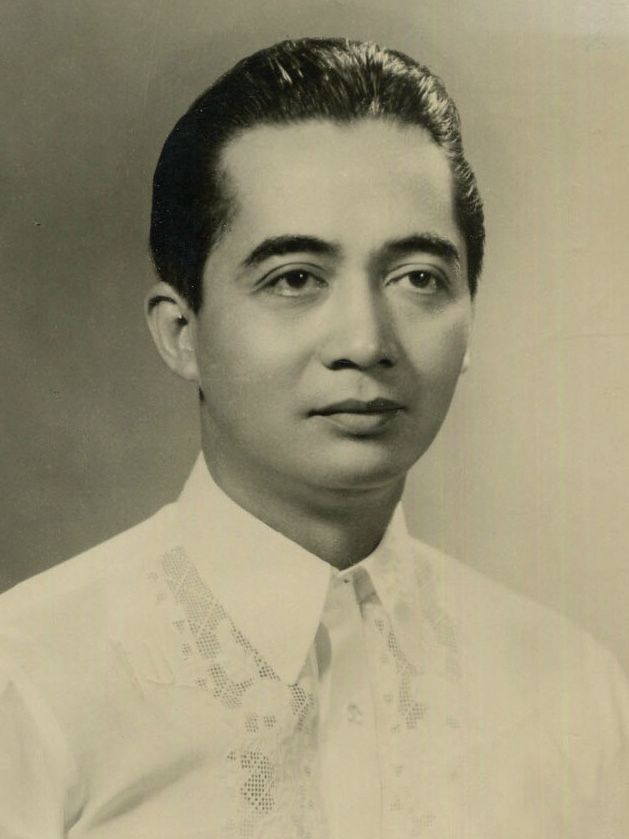
Soc Rodrigo was born on January 29, 1914 in Bulacan, Bulacan, to Marcela Aldana and Melecio Rodrigo. He was a blood kin of two great Bulacan heroes, Marcelo and Gregorio del Pilar.
He studied at Bulacan Elementary School and the University of the Philippines for high school. Rodrigo finished his A.B. and Bachelor of Science in Education degrees from Ateneo de Manila and the University of Santo Tomas. He completed his degree in Bachelor of Laws at the University of the Philippines in 1938.
After his studies, Rodrigo became a father in Francisco Delgado and Lorenzo’s law firm, where his penchant for oratory was already being noticed. As an outstanding orator and debater, Soc Rodrigo reached his forensic heights when he was captain of the College Debating Team.
During the Japanese occupation of the Philippines in World War II, Rodrigo distributed anti-Japanese propaganda materials together with Raul Manglapus and Manuel Fruto. In 1945, he moved his family to the underground basement of the Philippine General Hospital in Manila, where they survived the building’s destruction.
After passing the Bar, he joined the law firm of Senators Francisco Delgado and Lorenzo Tañada. In 1946, he opened the Rodrigo Law Office. Rodrigo authored Philippine Modern Legal Forms and Handbook on the Rules of Court. During the 1953 presidential elections, Soc Rodrigo covered the entire proceedings in an unprecedented marathon broadcast, a feat which won him the Legion of Honor Award from President Ramon Magsaysay.
His Senate’s performance has consistently landed him in the coveted list of the Ten Outstanding Senators and made him a much-invited guest of foreign governments from the United States, Great Britain, West Germany, and other countries. He was awarded a U.S. Government grant under the terms of Public Law 402 (Smith – Mundt) for observation and traveled under the auspices of the Governmental Affairs Institute(November 20, 1959 – January 20, 1960).
He was incarcerated upon the declaration of Martial Law in 1972 for being a Marcos dissent along with Ninoy Aquino et al. Rodrigo was released after three months. Still, he was detained two more times again, in 1978 and 1982, for writing Tagalog poems in the We Forum and Philippine Star newspapers attacking the Marcos dictatorship.
4. Senator Francisco Afan Delgado, Bulakan (1951-1957)
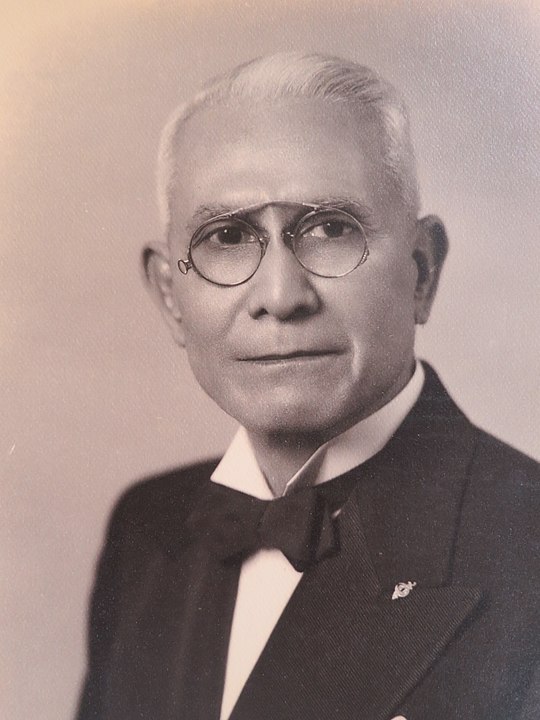
Afan Delgado was born in Bulakan, Bulacan, on January 25, 1886, to parents Nemesio Delgado and Manuela Afan. He studied at San Juan de Letran, Ateneo de Manila, and Collegio Filipino, a law school. He went to the United States and enrolled at Indiana University, where he graduated in 1907 with a Bachelor of Laws degree. He also studied at the University of Chicago and Yale University, where he received his Master of Laws degree, gradus cum laude, 1908.
He briefly practiced law with the Indianapolis firm of Chambers, Pikins, Morse, and Davidson. When he returned to Manila, he was admitted to the Bar and worked as a law clerk and later as Chief of the Executive Bureau’s Law Division. He was also a faculty at the College of Law, University of the Philippines.
In June 1931, he was elected Representative from the first district of Bulacan. Later in 1934, he was appointed Resident Commission to Washington D.C. and Judge of the Court of Appeals (1936-1937).
According to the Indiana University website, “After WW II, Delgado served as a member of the Philippines War Damages Commission (1946-19510), was elected to the Philippine Senate (1951-1957), and served as Ambassador to the United Nations (1958-1962).”
5. Senator Nicolas Buendia, Malolos (1941-1945)
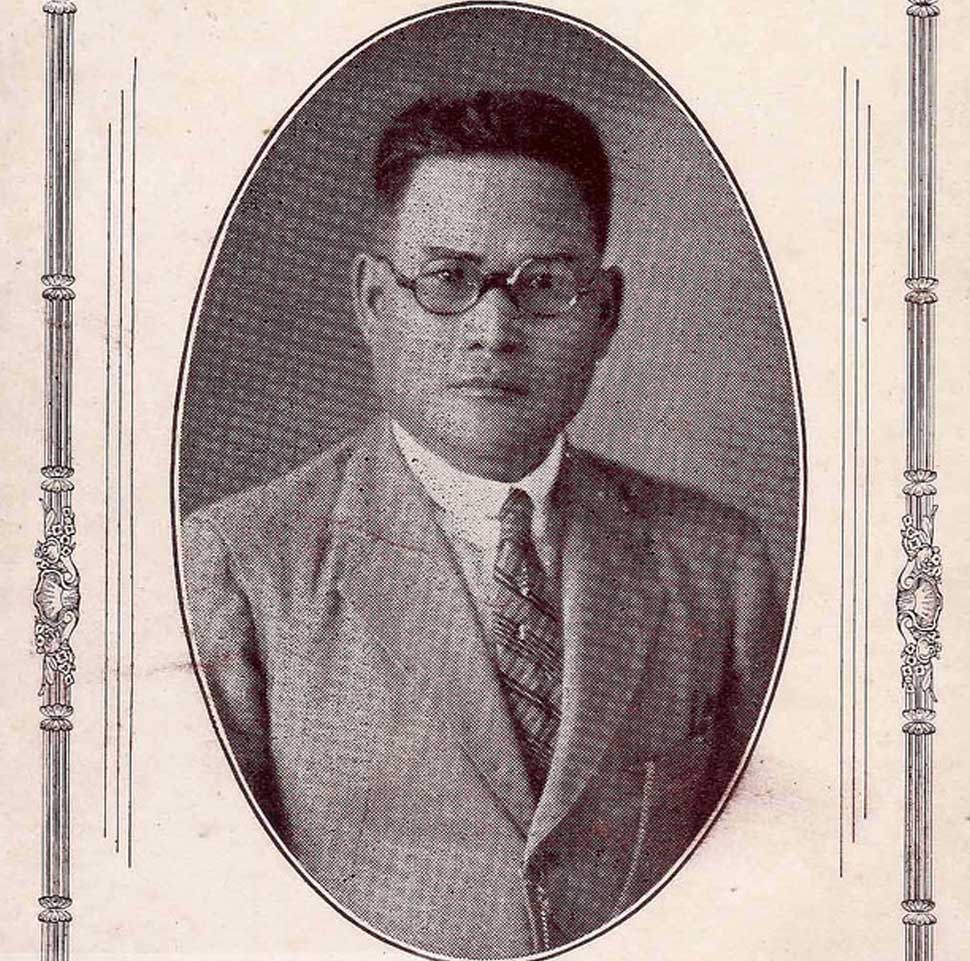
He was born on March 12, 1879, in Malolos, Bulacan, to Saturnino Buendia and Petrona Buidon. He learned his first letter under General Teodoro Sandiko in Malolos. He studied at Colegio de San Juan de Letran and obtained a Bachelor of Arts degree in Liceo de Manila. He was admitted to the Philippine Bar in 1910.
During the insurrection against Spain, he was a first lieutenant of the Philippine Revolutionary Army’s Infantry. He was a member of the Balangay Apuy of the Katipunan, an aide-de-camp of Gen. Isidoro Torres, the revolutionary known as “Matang Lawin.”
During the American regime, he was Municipal Secretary, Municipal Councilor, and Municipal President (Mayor) of Malolos. From 1916 to 1919, he served as the provincial governor of Bulacan. In 1934 he was elected as a delegate to the Constitutional Convention before the Commonwealth Period.
He was one of the founders of the Iglesia Filipina Independiente, the Aglipayan Church. Nicolas Buendia also founded the Masonic lodge in Malolos.
If you happen to pass by Buendia (now Gil Puyat) Avenue in Makati City, remember this street was initially named after Senator Nicolas Buendia to honor his contribution to the country.
6. Senator Teodoro Sandiko, Malolos (1919 to 1931)
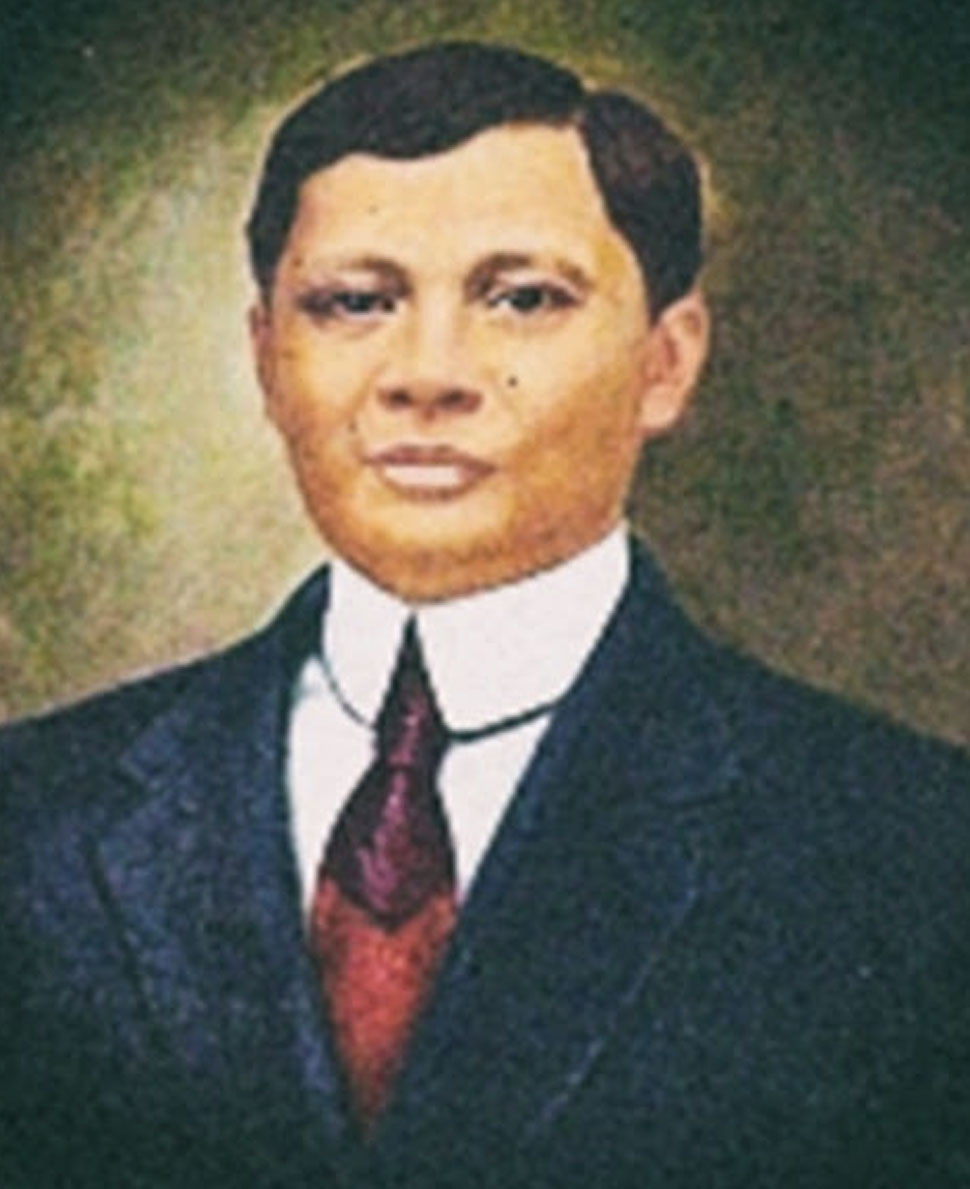
Senator Teodoro Sandiko (Sandico) was born in Pandacan, Manila, on March 31, 1860, to Miguel Sandiko and Maria Paz Santa Ana. He studied at the University of Santo Tomas, where he obtained his Bachelor of Arts in 1886. He then studied law for two years but opted to drop out and concentrate on teaching Spanish and establishing a Malolos school.
A group of young women in Malolos wrote, in December 1888, to Governor-General Valeriano Weyler to permit them to start a night class at the Instituto de Mujeres, wherein they would study the Spanish language under the tutelage of Teodoro Sandiko.
Read: KAMESTIZUHAN DISTRICT: Journey through Historic Malolos
The women’s request did not get the approval of the governor-general because the parish priest, Fray Garcia, went up against it. Sandiko, by that time, was secretly teaching Spanish classes in Malolos. However, it only lasted for a few weeks due to persecution from the church officials.
With his progressive ideas, he incurred the ire of the Spaniards, particularly of the ecclesiastical authorities. To escape persecution, he left for Hongkong and proceeded to Spain, where he continued his law studies at the University of Madrid. There, he met circles of Filipino exiles, including Jose Rizal and Marcelo H. del Pilar.
He managed La Solidaridad, a patriotic newspaper founded by Graciano Lopez Jaena on February 15, 1889, which later became the Filipino propaganda movement’s mouthpiece.
In the Revolutionary Government of General Emilio Aguinaldo, he held various positions: Director of the Secretaria de Relaciones Exteriores, Colonel of the Estado Mayor, and brigadier general of the Revolutionary government. He was also one of the signatories of the 1896 Philippine Constitution during the Malolos Congress.
In 1903, Sandiko married Mercedes Reyes Tiongson, one of the 20 Brave Women of Malolos.
Sandiko was elected as Bulacan governor from 1906–1909. During this time, he prepared a bill patterned after the Raiffeisen type of credit union and had Rep. Albert Barreto of Zambales sponsored the bill in the Lower House of Congress. The principal aim of this bill was to protect and develop the agricultural interest of the country. When the Barreto-sponsored bill was presented, it readily obtained unanimous approval on January 20, 1908. The Philippine Commission, however, turned it down.
Unrelentless, the same bill was again sponsored in the Lower House by Rep. Rafael Corpuz, who succeeded Rep. Barreto. The bill finally passed into law on February 11, 1914, and became Act 2508. When this Act was finally done into law, Gov. Sandiko earned the title, Father of Cooperation in this country.
7. Senator Ceferino De Leon, San Miguel (1919 – 1922)
On August 29, 1859, he was born in San Miguel, formerly known as San Miguel de Mayumo. He studied at the University of Santo Tomas and completed a law degree at the Universidad Central de Madrid. De Leon served as a prosecutor (fiscal) of Barotac Viejo and Justice of the Peace of his hometown of San Miguel.
During the Philippine Revolution, Sixto Zandueta and Ceferino De Leon were appointed as a delegate of Padre Burgos (now known as Benguet province) to the Malolos Congress, the revolutionary Constitution of 1896. Remarkably, De Leon was one of the signatories of the 1896 Philippine Constitution.
In the 1912 elections, De Leon was elected to the Philippine House of Representatives on behalf of Bulacan’s 3rd constituency. Following Senator Francisco Liongson, De Leon was elected by special election on October 25, 1919, as his successor to the Senate for the remainder of his term until 1922.
Fun fact: Senator De Leon was Jose Rizal’s classmate and roommate in Madrid, Spain. According to Ambeth Ocampo’s book, Rizal Without the Overcoat, in 1884, a classmate of Rizal named Ceferino de Leon tried to pursue Leonor Rivera but held off on learning she was the hero’s fiancee.
Elected Senators in the Philippines with Bulacan Roots
- President Benigno “Noynoy” Aquino III – His grandfather, Jose Cojuangco, was born in Malolos. The Cojuangco ancestral house still stands today just a few meters away from the Barasoain Chuch. Noynoy served as a senator from 2007 to 2010 before being elected as President in 2010.
- Senator Alfredo Lim – His mother, Rosario Siojo, a Bulakenya with Chinese ancestry from the Siojo family of San Miguel. He served as a senator from 2004 to 2007.
- Senator Mar Roxas – His grandmother, Trinidad de Leon (Senator Ceferino De Leon’s daughter), was from San Miguel. He served as a senator from 2004 to 2010.
- Senator Juan Ponce Enrile – His father, Alfonso Ponce Enrile, was born in Baliuag. JPE served as a senator from 1987 to 1992, 1995 to 2001, and 2004 to 2016.
- Senators Bongbong Marcos and Imee Marcos – Their grandmother, Doña Remedios Trinidad, was born in Baliuag. Bongbong served as a senator from 2010 to 2016, while his sister Imee is an incumbent (2016 – Present).
- President Joseph Ejercito Estrada – His grandfather Judge Arcadio Ejercito is from Malolos. Pres. Erap served as a senator from 1987 to 1992. His sons JV and Jinggoy Estrada also served as senators.
- Senator JV Estrada served from 2013 to 2019, while his half-brother Senator Jinggoy Estrada served from 2004 to 2016.
- Senator Rene Cayetano – His father, Pedro Santiago Cayetano, is from Marilao. Rene served as a senator from 1998 to 2003. He is the father of Senators Pia, who served from 2004 to 2016 and 2019 to Present, and Peter Alan served from 2007 to 2017.
References:
- Joel Villanueva. (2016, March 4). Wikipedia, the free encyclopedia. Retrieved October 22, 2020, from https://en.wikipedia.org/wiki/Joel_Villanueva
- Ex-UST player sen. Joel Villanueva: I will always be a growling tiger. (2019, November 6). Spin.ph. https://www.spin.ph/life/guide/joel-villanueva-ust-growling-tiger-a2442-20191106
- Press release – Signing into law of first-time Jobseekers assistance act a timely graduation gift for our fresh grads – Villanueva. (n.d.). https://legacy.senate.gov.ph/press_release/2019/0507_villanueva1.asp
- Ramos, C. M. (2020, September 14). Medical scholarship bill gets final Senate nod. INQUIRER.net. https://newsinfo.inquirer.net/1335157/medical-scholarship-bill-gets-final-senate-nod
- Senate greenlights alternative working arrangement bill on second reading – Villanueva — IKOT.PH. (2019, February 11). IKOT.PH. https://www.ikot.ph/senate-green-lights-alternative-working-arrangement-bill-on-second-reading-villanueva/
- Villanueva refiles anti-Endo bill days after the veto. (2019, July 29). Rappler. https://www.rappler.com/nation/villanueva-refiles-anti-endo-bill-days-after-veto-july-2019
- 73. Trining de Leon roxas: From oriental Carnival Queen to a first lady. (2012, August). Pinoy Kollektor. https://pinoykollektor.blogspot.com/2012/08/73-trining-de-leon-roxas-from-oriental.html
- Alfonso Ponce Enrile. (2018, May 24). geni_family_tree. https://www.geni.com/people/Alfonso-Ponce-Enrile/6000000002983438803
- Biography of Senate president Ople – Senate of the Philippines. (n.d.). https://legacy.senate.gov.ph/senators/senpres/ople.asp
- Blas Ople. (2003, December 14). Wikipedia, the free encyclopedia. Retrieved October 22, 2020, from https://en.wikipedia.org/wiki/Blas_Ople
- Bulacan, Philippines: General info: Provincial governors: Nicolas Buendia. (n.d.). Provincial Government of Bulacan Online. https://bulacan.gov.ph/generalinfo/governor.php?id=35
- Ceferino de Leon. (2015, July 6). Wikipedia, de vrije encyclopedie. Retrieved October 22, 2020, from https://nl.wikipedia.org/wiki/Ceferino_de_Leon
- The Cojuangco ancestral house. (n.d.). My Refrigerator Door. https://myrefrigeratordoor.blogspot.com/2014/05/the-cojuangco-ancestral-house.html
- Cojuangco, T. (2004, August 29). Lualhati Aldaba Cojuangco: From Malolos to Tarlac. philstar.com. https://www.philstar.com/lifestyle/sunday-life/2004/08/29/263058/lualhati-aldaba-cojuangco-malolos-tarlac
- Francisco Afan Delgado. (2006, April 25). Wikipedia, the free encyclopedia. Retrieved October 22, 2020, from https://en.wikipedia.org/wiki/Francisco_Afan_Delgado
- Franciso Afan Delgado. (n.d.). Digital Repository @ Maurer Law. https://www.repository.law.indiana.edu/notablealumni/188/
- Girl power: The women of Malolos. (2015, September 9). National Historical Commission of the Philippines. https://nhcp.gov.ph/girl-power-the-women-of-malolos/
- Gutenberg, P. (n.d.). Remedios T. Romualdez | Project Gutenberg self-publishing – eBooks | Read eBooks online. Project Gutenberg Self-Publishing – eBooks | Read eBooks online | Free eBooks. https://self.gutenberg.org/articles/remedios_t._romualdez
- History of cooperative in the Philippines. (n.d.). PHCCI – Perpetual Help Community Cooperative. https://www.phcci.coop/about-us/cooperative-movement/history-of-cooperative-in-the-philippines
- Jose Cojuangco. (2008, December 5). Wikipedia, the free encyclopedia. Retrieved October 22, 2020, from https://en.wikipedia.org/wiki/Jos%C3%A9_Cojuangco
- Malolos. (n.d.). The Most Worshipful Grand Lodge of Free and Accepted Masons of the Philippines. https://grandlodge.ph/lodges/malolos
- Ocampo, A. R. (2012, October 16). Malala and the women of Malolos. INQUIRER.net. https://opinion.inquirer.net/38878/malala-and-the-women-of-malolos
- Ocampo, A. R. (2018). Rizal without the overcoat.
- Reyes-Estrope, C. (2020, February 3). ‘Bulacan’s gift to the world’: Blas Ople honored in 93rd birth anniversary rites. INQUIRER.net. https://newsinfo.inquirer.net/1223653/bulacans-gift-to-the-world-blas-ople-honored-in-93rd-birth-anniversary-rites
- The secret life and loves of Manuel Roxas. (2014, October 12). Inquirer Lifestyle. https://lifestyle.inquirer.net/174206/the-secret-life-and-loves-of-manuel-roxas/
- Senators profile – Francisco A. Delgado. (n.d.). https://legacy.senate.gov.ph/senators/former_senators/francisco_delgado.htm
- Senators profile – Nicolas Buendia. (n.d.). https://legacy.senate.gov.ph/senators/former_senators/nicolas_buendia.htm
- Senators profile – Teodoro Sandiko. (n.d.). https://legacy.senate.gov.ph/senators/former_senators/teodoro_sandiko.htm
- Teodoro Sandiko. (2011, December 14). Wikipedia, the free encyclopedia. Retrieved October 22, 2020, from https://en.wikipedia.org/wiki/Teodoro_Sandiko
- There’s more to Malolos than Barasoain. (2014, October 14). Inquirer Lifestyle. https://lifestyle.inquirer.net/174423/theres-more-to-malolos-than-barasoain/
- Umali, J. (2019, January 16). Who are the people behind the famous avenues and boulevards of Manila? Esquiremag.ph. https://www.esquiremag.ph/long-reads/features/names-people-street-metro-manila-a2212-20190116-lfrm